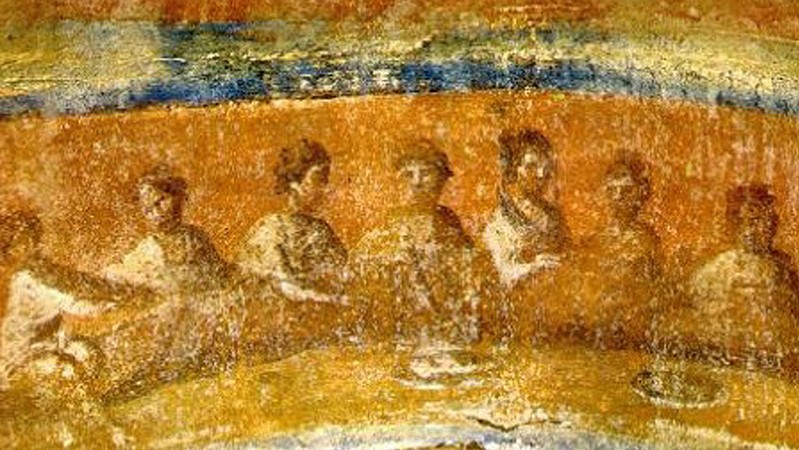
Isaiah 25:6-9
All Saints’ Day B
6 On this mountain the LordA of hostsB will make for all peoplesC
a feastD of rich food,E a feast of well-aged wines,F
of rich food filled with marrow,G of well-aged wines strained clear.H
7 And he will destroyI on this mountain
the shroudJ that is castK over all peoples,
the sheetL that is spreadM over all nations;N
8 he will swallow upO death forever.P
Then the LordQ God will wipe awayR the tears from all faces,
and the disgraceS of his people he will take awayT from all the earth,
for the Lord has spoken.
9 It will be said on that day,
Lo,U this is our God;V we have waitedW for him, so that he might saveX us.
This is the Lord for whom we have waited;
let us be gladY and rejoiceZ in his salvation.AA
Image Credit: Fresco of an Agape Meal from Catacomb of Priscilla in Rome, 3rd century.
